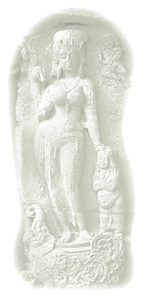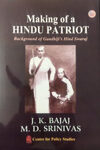Letters from CPS
-
Test Post
July 15, 2025
Latest CPS Blog Posts
-
Demographic Decline of Ladakh
October 15, 2025
-
Demography of the World II: Africa
July 22, 2025
-
Demography of the World I: World and its Continents
July 4, 2025
-
Hindu Mode of Governance
April 3, 2025
-
Religious Demography of India: I Kerala
January 30, 2025
-
Democracy and Consensus
November 3, 2024
Constitutional Framework and Structures of Governance in India:
A Historical Perspective
Series of Weekly Lectures by Sri Devendra Swarup
Lecture VI, Saturday, August 04, 2012
SUMMARY
In his sixth talk in this series, Sri Devendra Swarup continued his exposition of the eighteenth and early nineteenth century history of India. He had ended his previous talk on a major turning point of Indian history – the year 1803. That date has not been accorded its due place in our history texts which present 1818, the year in which the Peshwaship was abolished, as the decisive point. But 1818 was a mere formalization of a momentous shift in power that happened in 1803, when the British entered Delhi and ousted the Marathas. This event established that the future belonged to the British, and not the Marathas.
The Muslim ulema immediately understood the significance of this event. Shah Abdul Aziz issued a fatwa declaring the British to be the principal enemy and declaring that in that difficult situation it was permissible to ally with Kafirs, meaning the Marathas in this case, to defeat the British. This was a complete reversal of the Muslim position till then. A few decades earlier, Abdul Aziz’s father Shah Waliullah, alarmed at the rise of Sikh and Maratha power, had invited the Afghan ruler Ahmad Shah Abdali to invade India in support of Muslim supremacy. That invasion had resulted in the rout of the Marathas in the third battle of Panipat in 1761.
It is after 1803 that Pindaris become important in Indian history. They were associated with various Maratha camps. There were large groups of Pindaris with the Holkars and Sindhias and they were accordingly known as the Holkarshahi and Sindhiashahi Pindaris. They used to launch destructive forays into British territory and then return to the Maratha regions. The British came to look upon them as a major disruptive force aligned against them.
With the British thus becoming the predominant power in India, they began to consciously replace their earlier admiration for Indian civilization with a conviction in British superiority. Charles Grant, an evangelist, was among the pioneers in effecting this change. As Director and later Chairman of the Company, he was in a position to introduce fundamental changes in Company policies. His view of Indian civilization was evident in his Observations,[1] which was said to be mostly written in 1792.
Grant was instrumental in establishing Haileybury College in London which trained British officials before they were sent to India. The College was expected to indoctrinate them in British superiority. This, it was hoped, would save them from succumbing to the “disease” of Brahminization that had claimed so many Englishmen. Grant also used his position to surreptitiously send Christian missionaries to India. He asked James Mill to write a history of India. Mill was a Utilitarian, but both the Evangelists and the Utilitarians were interested in the consolidation of British power in India. Mill’s history was highly derogatory of India and was used as a textbook at Haileybury. After its completion, Mill was appointed Assistant Examiner and later Examiner of Indian correspondence at the London headquarters of the East India Company. Later, his son, John Stuart Mill, was also appointed Examiner. Incidentally, while defending the Company in 1858, the younger Mill asserted that in the previous 25 year, the Company had taken no decision on its own; it had merely followed the policies determined by the British Government.[2]
In the defeat of Marathas, the role of destiny cannot be discounted. The Marathas were endowed with many outstanding commanders. It is a tragic fact that many of their great leaders died at a very young age. Bajirao I, who raised the slogan of extending Hindavi Swaraj from Cuttak to Attock and who was the first Maratha general to reach Delhi, became Peshwa in 1720 at the age of 20 years, and died at 40. Chimaji Appa, Bajirao I’s younger brother was a great administrator and a brilliant General. While Bajirao I was busy in his numerous military campaigns, Chimaji Appa kept the administration and finances at Pune in order. He also won a great and famous victory against the Portuguese in the battle of Vasai near Mumbai. He died at the age of 38, a few months after Bajirao I. Bajirao I was followed by Balaji Bajirao, who became Peshwa at the age of 19. In his time the Maratha Empire reached its pinnacle. He died at 40. After Balaji Bajirao, Madhav Rao became Peshwa at the young age of 17. He took command of the Marathas at the most difficult time, in the year when their forces had been routed at Panipat. In just 11 years, he raised Maratha power to its earlier glory and extent. In 1772, one of his great Generals, Mahadji Sindhia, escorted the Mughal Emperor Shah Alam from Allahabad to Delhi. Soon after this achievement, Peshwa Madhav Rao died, in the very same year, at the young age of 28.
Then, towards the end of the eighteenth century, the most important of Maratha leaders and Generals all died almost within a decade. Mahadji Sindhia died in 1794. Ahilya Bai Holkar died in 1795. Nana Fadanvis died in 1800. These losses just before the culminating battle of 1803 can be attributed to only destiny.
Britain at this time was also grappling with the challenge of a vibrant France. Napoleon was enamoured of India and wanted the French to replace the British in India. His attack on Egypt was believed to be a calculated move in that direction. But by 1815, Britain had emerged victorious against France. By that time, they had already become the dominant force in India.
We learn about Napoleon only from the British sources. We tend to overlook his role in making France a great nation of the modern world. For almost half a century, he was viewed as a great force for the good; many European countries attempted to energise their nations with the call for implementing “Code Napoleon.” Even Aurobindo is reported to have described Napoleon as an avatar of kali who swept away the old and ushered in the new.
England was also undergoing change at that time. In the wake of the industrial revolution and technological breakthroughs, the British were experimenting with new institutions; some of the latter they also introduced in India. Several Governor-Generals were of the view that technological change in India would help establish British ideas, institutions and administration in India. There was much debate in England about the nature of colonisation in India. The consensus was that any large-scale settlement of the British or European people in India was impossible because of the already high density of population, the vast expanse of the country, and a climate that was too hot for the Europeans. The British statesmen, therefore, felt that they could rule India at a far lesser cost if the Indians themselves were involved in the effort. For that to happen, dissemination of English education was essential. Much before Macaulay, Holt Mackenzie had argued in favour of grafting English education on the existing system. A dispatch of 1824, believed to be drafted by James Mill, explicitly suggested that the British should endeavour to establish English education in the country. The Hindu College at Calcutta was already established in 1816; it was renamed Presidency College in 1852.
To understand the frame of mind of the high British statesmen of that time, it is instructive to look at the case of Fredrick John Shore, son of Sir John Shore. The latter had served as Governor-General in India and on returning home had joined the Clapham Sect. When Fredrick Shore was leaving for India, the senior Shore wrote a 40 page long letter to him, cautioning him against succumbing to Indian culture and civilization the way he himself had succumbed while in India. He asked his son to keep a map of England in his room, look at it everyday, and always remind himself that the purpose of his presence in India was to earn money and return to Britain.
Fredrick stayed in India for 11 years; then he briefly returned to England for two years, and again came to India in 1831. During his second visit, he became a strong critic of the British. Writing under the pseudonym, A Friend of India, in India Gazette, a daily paper published from Calcutta, he offered trenchant criticism of British policies on the issue of language and script to be used in India, and on the kind of revenue, judicial and administrative systems appropriate for this country. These articles – put together and published from London in 1837 in two volumes under the title Notes on Indian Affairs – provide a contemporary critique of British policy. The articles show that notwithstanding the great precautions taken by his father, Sir John Shore, the young Fredrick indeed got Indianised.
About two decades prior to 1857, the British had succeeded in introducing their own revenue, judicial and educational systems in India. In 1837, Persian was replaced by Urdu as an interim arrangement. And ultimately in 1842, English was introduced as the language of administration.
The British could not have stayed in India indefinitely. But their high statesmen wanted to ensure that when the time for the departure came, they should leave behind a grateful and not a hostile nation. If they were to create a small class of Indians trained and educated in the British system, then it would be possible to ultimately transfer power to this class. That, they foresaw as their final victory. In this plan, the British succeeded, perhaps much beyond their expectations and hopes.
In the next lecture, Sri Devendra Swarup shall deal with the events of 1857 and their impact on British policy in India.
[1] The full title of this text published in 1797 is “Observations on the State of Society among the Asiatic Subjects of Great-Britain, particularly with respect to Morals and on the Means of Improving it.”
[2]All decisions concerning India were in fact taken by the Board of Control, which was an arm of the British government. These decisions were then conveyed to India in the name of the Company.





